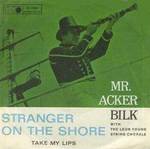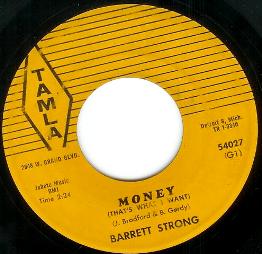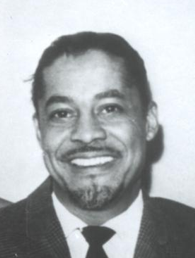Related Research Articles
Instrumental rock is rock music that emphasizes instrumental performance and features very little or no singing. Examples of instrumental music in rock can be found in practically every subgenre of the style. Instrumental rock was most popular from the mid-1950s to mid-1960s, with artists such as Bill Doggett Combo, The Fireballs, The Shadows, The Ventures, Johnny and the Hurricanes and The Spotnicks. Surf music had many instrumental songs. Many instrumental hits had roots from the R&B genre. The Allman Brothers Band feature several instrumentals. Jeff Beck also recorded two instrumental albums in the 1970s. Progressive rock and art rock performers of the late 1960s and early 1970s did many virtuosic instrumental performances.
"Mack the Knife" or "The Ballad of Mack the Knife" is a song composed by Kurt Weill with lyrics by Bertolt Brecht for their 1928 music drama The Threepenny Opera. The song tells of a knife-wielding criminal of the London underworld from the musical named Macheath, the "Mack the Knife" of the title.

"Stranger on the Shore" is a piece for clarinet written by Acker Bilk for his young daughter and originally named "Jenny" after her. The tune was written on a single scrap of paper by Bilk and handed over to Leon Young (1916-1991) who crafted the string arrangement, including the characteristic harmonic shifts at the very end.

"Misty" is a jazz standard written in 1954 by pianist Erroll Garner. He composed it as an instrumental in the traditional 32-bar format, and recorded it for the album Contrasts. Lyrics were added later by Johnny Burke. It appeared on Johnny Mathis' 1959 album Heavenly, and this recording reached number 12 on the U.S. Pop Singles chart later that year. It has since become Mathis’ signature song.

"Money (That's What I Want)" is a rhythm and blues song written by Tamla founder Berry Gordy and Janie Bradford, which was the first hit record for Gordy's Motown enterprise. Barrett Strong recorded it in 1959 as a single for the Tamla label, distributed nationally on Anna Records. Many artists later recorded the tune, including the Beatles in 1963 and the Flying Lizards in 1979.

"Boogie Wonderland" is a song by American band Earth, Wind & Fire with the Emotions, released in April 1979 on Columbia Records as the first single from their ninth album, I Am (1979). The song peaked at number 14 on the US Billboard dance chart, number six on the Billboard Hot 100, and number two on the Billboard Hot Soul Singles chart. It was certified gold in the US and platinum in the UK. "Boogie Wonderland" was Grammy nominated in the categories of Best R&B Instrumental Performance and Best Disco Recording. It won the Grammy for Best R&B Instrumental Performance.

Shadows and Light is the second live album by Canadian musician Joni Mitchell. It was released in September 1980 through Asylum Records, her last release for the label. It was recorded in September 1979 at the Santa Barbara Bowl in Santa Barbara, California.
"The Christmas Song" is a classic Christmas song written in 1945 by Robert Wells and Mel Tormé.

Felsted Records was the name of two record labels. The UK version began as a subsidiary of Decca Records in July 1954 with music mainly in the jazz and dance band genres and recordings leased from the French Blue Star, Riviera, and Classique labels. The label took its name from the village where Sir Edward Lewis, the head of UK Decca, lived. The British label's only release of note was "Smokie", the first single by Bill Black's Combo, Black having been Elvis Presley's bassist, licensed from Hi Records.

Willie Littlefield, Jr., billed as Little Willie Littlefield, was an American R&B and boogie-woogie pianist and singer whose early recordings "formed a vital link between boogie-woogie and rock and roll". Littlefield was regarded as a teenage wonder and overnight sensation when in 1949, at the age of 18, he popularized the triplet piano style on his Modern Records debut single, "It's Midnight". He also recorded the first version of the song "Kansas City", in 1952.
B. Bumble and the Stingers was an American instrumental ensemble in the early 1960s, specializing in rock and roll arrangements of classical melodies. The band's biggest hits were "Bumble Boogie", which reached number 21 in the US, and "Nut Rocker", which reached number 1 in the UK Singles Chart in 1962. The recordings were made by session musicians at Rendezvous Records in Los Angeles. When their recordings became successful a touring group was formed, led by R. C. Gamble as "Billy Bumble".

Ernest Aaron Freeman was an American pianist, organist, bandleader, and arranger. He was responsible for arranging many successful rhythm and blues and pop records from the 1950s to the 1970s.
"Rise" is an instrumental written by Andy Armer and Randy 'Badazz' Alpert, first recorded in 1979 by trumpeter Herb Alpert. Released as a single from Alpert's solo album Rise, the song reached #1 on the Billboard charts. It is the instrumental sample for The Notorious B.I.G. hit "Hypnotize".
"Nut Rocker" is an instrumental rock single recorded by American instrumental ensemble B. Bumble and the Stingers that reached number 23 in the U.S. Billboard Hot 100 in March 1962 and went to number 1 in the UK Singles Chart in May 1962. It is a version of the march from Tchaikovsky's 1892 ballet The Nutcracker.

"Boogie Fever" is a song recorded by Los Angeles, California-based R&B group the Sylvers, from their 1975 album Showcase. Their most lucrative single, it reached No. 1 in the US on both the Billboard Hot 100 and Hot Soul Singles charts as well as reaching No. 1 in Canada on the RPM national singles chart in 1976. It was their third of nine Top 20 R&B hits and first top 40 pop single. Billboard ranked it as the No. 20 song for 1976. "Boogie Fever" is one of two gold records by the Sylvers, the other being "Hot Line".
The Virtues were an early American rock and roll band from Philadelphia, Pennsylvania, United States.
James Joseph Wisner was an American pianist, arranger, songwriter, and producer. He is best known for his 1961 hit single "Asia Minor", released under the name Kokomo.

"Guitar Boogie" is a guitar instrumental recorded by Arthur "Guitar Boogie" Smith in 1945. It was one of the first recordings in the style later dubbed "hillbilly boogie" to reach a widespread audience, and eventually sold nearly three million copies. It was the first guitar instrumental to climb the country music charts, and then crossover and also gain high rankings on the popular music charts. "Guitar Boogie" has been interpreted and recorded by a variety of musicians. It is among the songs discussed as the first rock and roll record.
"Last Date" is a 1960 instrumental written and performed by Floyd Cramer. It exemplifies the "slip note" style of piano playing that Cramer made popular. It peaked at number 11 on the country chart and at number two on the Hot 100 behind "Are You Lonesome Tonight?" by Elvis Presley. Cramer's recording inspired a number of successful cover versions, including a vocal adaptation by Conway Twitty.
"Peter Gunn" is the theme music composed by Henry Mancini for the television show of the same name. The song was the opening track on the original soundtrack album, The Music from Peter Gunn, released by RCA Victor in 1959. Mancini won an Emmy Award and two Grammys for Album of the Year and Best Arrangement. In 2005, the song was inducted into the Grammy Hall of Fame.
References
- 1 2 3 4 5 6 7 8 9 10 "Kokomo". Way Back Attack. 2011-04-02. Retrieved 2014-06-13.
- ↑ "All Instrumental Top 20 Songs, every top 20 instrumental, Dec 1959 - Jun 1962". Tunecaster.
- 1 2 3 4 Review of Asia Minor. AllMusic
- 1 2 3 Billboard, AllMusic
- 1 2 3 "Kokomo". Official Charts Company.
- 1 2 "Unfit for Auntie's airwaves: The artists censored by the BBC - Features - Music". The Independent. 2007-12-14. Retrieved 2014-06-13.
- 1 2 Jancik, Wayne (1998). The Billboard Book of One-Hit Wonders. Billboard Books. p. 110. ISBN 0-8230-7622-9.
- ↑ Larkin, Colin. The Encyclopedia of Popular Music Volume 4. p. 3057.
- ↑ "B. Bumble & The Stingers | Artist". Official Charts. 1962-04-19. Retrieved 2014-06-13.